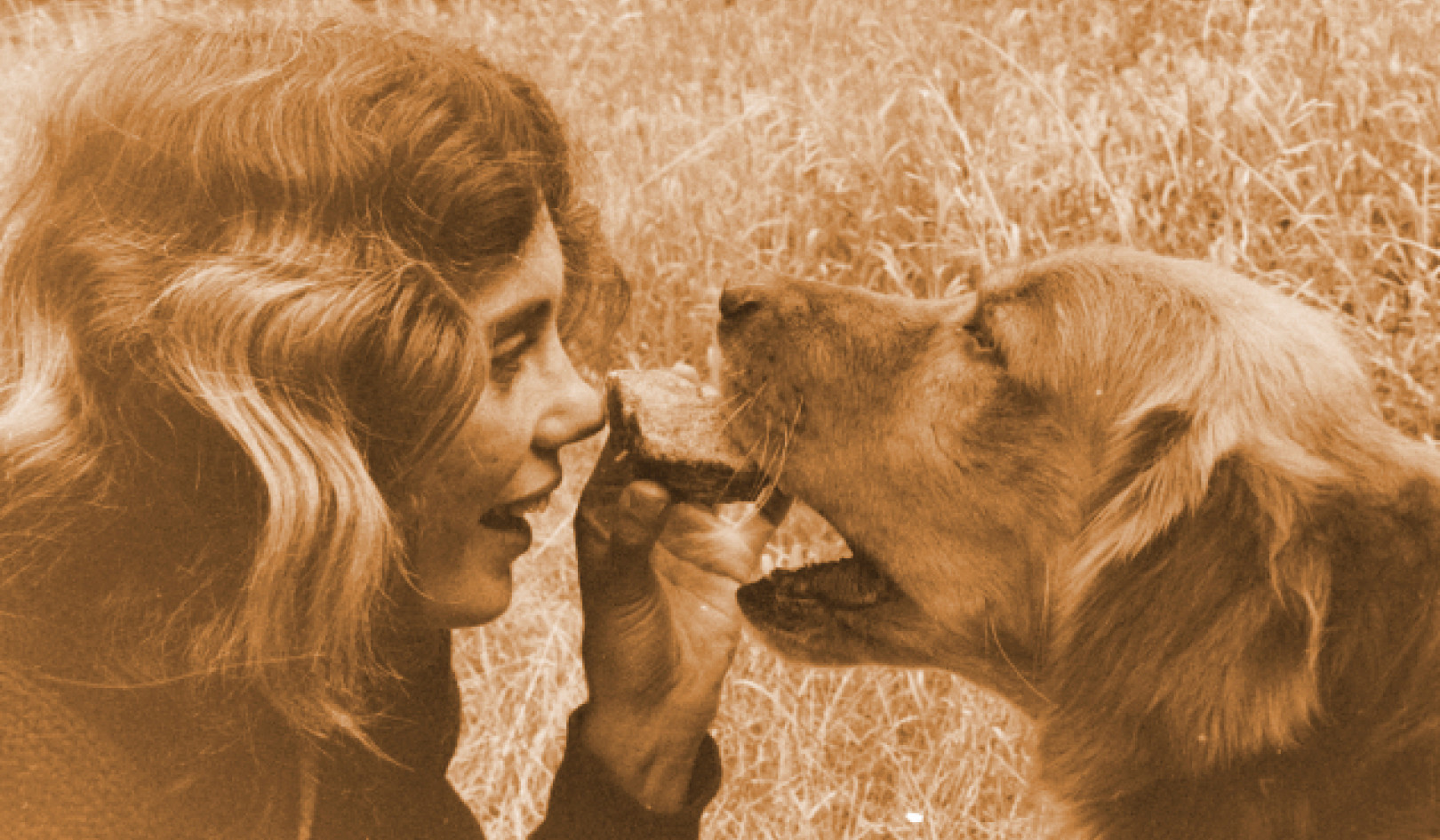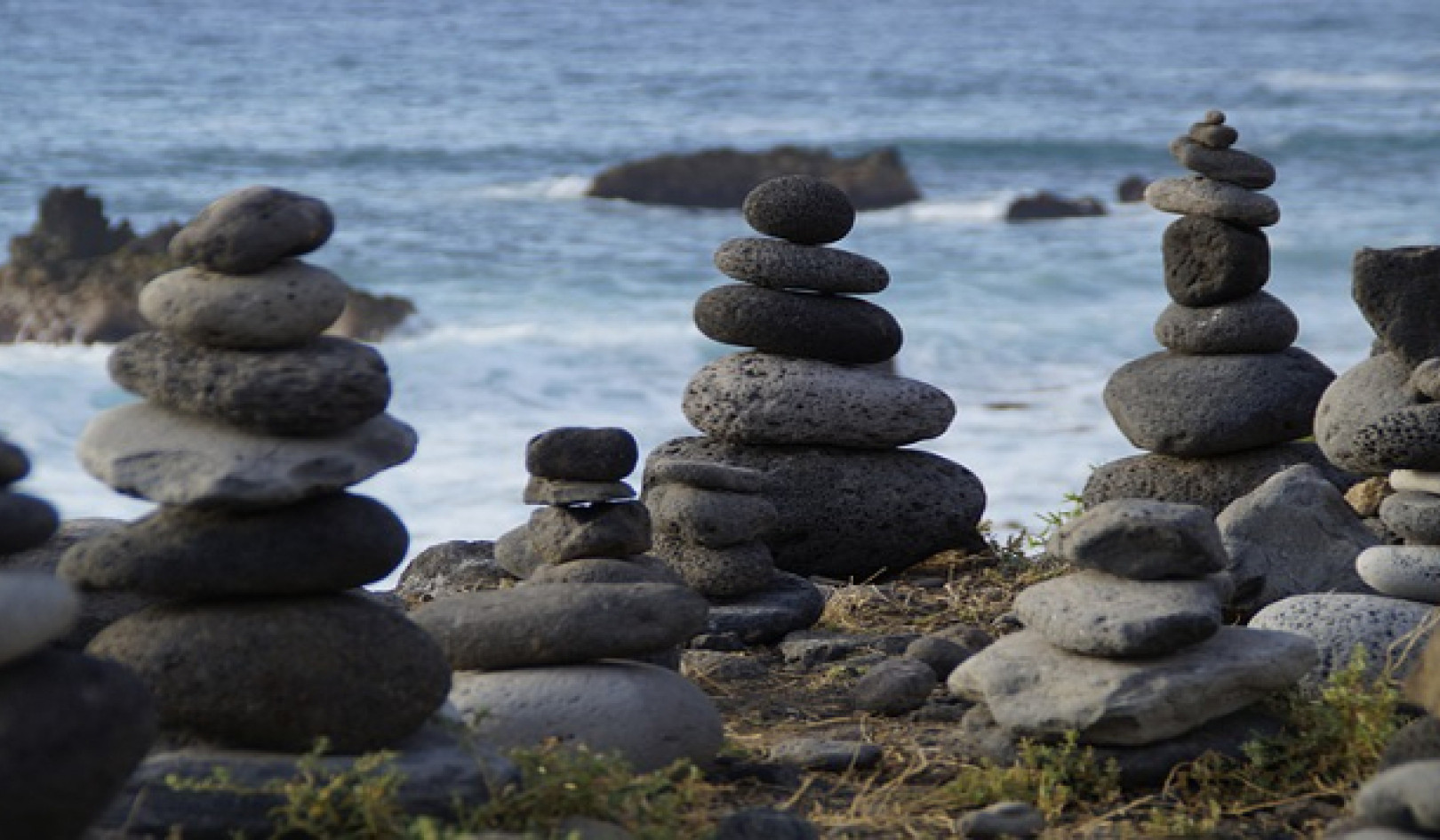
Image by Santa3
Because I've spent the happier parts of my life at the southern edge of New Hampshire's White Mountains, two peaks rule my imagination: Mount Washington for its sheer size, its record winds and killing weather, and Mount Chocorua for its noble profile and for the legend of the defiant Pequawket Indian chief who leaped to his death from its summit, cursing the white men who had pursued him there.
I climbed Chocorua many times as a boy, and from the time of our courtship, my wife and I counted a hike to its summit as one of our annual rituals. On one such hike we made the romantic and wildly impractical decision to build a seasonal home here in New Hampshire, the place of my boyhood summers, over a thousand miles away from the Midwestern flatlands where we live and work most of the year.
On the same hike, incidentally, I talked a teenage boy out of jumping off the large angular boulder that perches just a few yards down from the summit on the east side. The boy had climbed atop the rock, about the size of a one-car garage, and then could not quite bring himself to climb down again. As he was on the point of leaping, encouraged by his friends below, I summoned my best classroom voice and said, "Don't do that." I then talked him down the way he had come up. In the back of my mind I was thinking that this young man was not cut out for Chief Chocorua's fate.
The Lesser Triumphs...
Barring a miracle, I'll not climb Chocorua again. It's been almost four years since I was diagnosed with Lou Gehrig's disease, a degenerative and ultimately fatal neurological condition with no effective treatment and no cure. In that time, I've managed to finish climbing all forty-eight of the New Hampshire peaks above four thousand feet, a task begun at age six with my first ascent of Mount Washington. Now, however, my legs won't go the distance, and I must content myself with the lesser triumphs of getting on my socks in the morning and making it down the stairs.
On the day last summer when I began writing this essay, my wife, Kathryn, and our seven-year-old son, Aaron, were climbing Mount Washington without me. Unable to join them in body, I did a quick search of the Web and found a live view from a camera mounted on the observatory at the summit. Pointed north, the camera showed the darkly hunched peaks of the northern Presidential Range beneath blue sky. Another click of the mouse gave me the current weather conditions. A near perfect July day: visibility eighty miles, wind at thirty-five miles per hour, temperature forty-two degrees. Satisfied that my wife and son would experience the summit at its best, I then set out to discover, in their honor, what it might be possible to say about climbing, and not climbing. About remaining upright, and learning to fall.
Learning to Fall, Learning to Fail
Actors and stuntmen learn to fall: as kids we watched them leap from moving trains and stagecoaches. I have a dim memory of an eighth-grade acting class in which I was taught to fall, but I can't remember the technique. Athletes learn to fall, and most people who have played sports have at some point had a coach tell them how to dive and roll, an art I never mastered. Devotees of the martial arts learn to fall, as do dancers and rock climbers. Mostly, though, we learn to do it badly.
My earliest memory: I'm standing alone at the top of the stairs, looking down, scared. I call for my mother, but she doesn't come. I grip the banister and look down: I have never done this on my own before. It's the first conscious decision of my life. On some level I must know that by doing this I'm becoming something new: I am becoming an "I." The memory ends here: my hand gripping the rail above my head, one foot launched into space.
Forty years later, encroaching baldness has made it easier to see the scars I gained from that adventure. Still, I don't regret it. One has to start somewhere. Is not falling, as much as climbing, our birthright? In the Christian theology of the fall, we all suffer the fall from grace, the fall from our primordial connectedness with God. My little tumble down the stairs was my own expulsion from the Garden: ever after I have been falling forward and down into the scarred years of conscious life, falling into the knowledge of pain, grief, and loss.
We have all suffered, and will suffer, our own falls. The fall from youthful ideals, the waning of physical strength, the failure of a cherished hope, the loss of our near and dear, the fall into injury or sickness, and late or soon, the fall to our certain ends. We have no choice but to fall, and little say as to the time or the means.
Perhaps, however, we do have some say in the manner of our falling. That is, perhaps we have a say in matters of style. As kids we all played the game of leaping from a diving board or dock, and before hitting the water striking some outrageous or goofy pose: ax-murderer, Washington crossing the Delaware, rabid dog. Maybe it comes to no more than this. But I'd like to think that learning to fall is more than merely a matter of posing, more than an opportunity to play it for laughs. In fact, I would have it that in the way of our falling we have the opportunity to express our essential humanity.
Seize the Moment
There's a well-known Zen parable about the man who was crossing a field when he saw a tiger charging at him. The man ran, but the tiger gained on him, chasing him toward the edge of a cliff. When he reached the edge, the man had no choice but to leap. He had one chance to save himself: a scrubby branch growing out of the side of the cliff about halfway down. He grabbed the branch and hung on. Looking down, what did he see on the ground below? Another tiger.
Then the man saw that a few feet off to his left a small plant grew out of the cliff, and from it there hung one ripe strawberry. Letting go with one hand he found that he could stretch his arm out just far enough to pluck the berry with his fingertips and bring it to his lips.
How sweet it tasted!
Finding Ourselves In A Predicament
I found myself in it summer before last, halfway up the rock slide on the north peak of Mount Tripyramid. The north slide of Tripyramid is a mile of slick granite slabs and loose gravel partially grown over with scrubby spruce and birch on a pitch as steep as the roof of your house. I had done this hike as a boy, in canvas sneakers and long pants, but had not remembered how hard it was.
Earlier that summer my weakening, wobbly legs had managed to get me up Chocorua with only a little trouble on the upper ledges. But here they had failed me. I had already fallen twice, bruising ribs, gashing knees, mashing one elbow to pulp. Standing there looking out over the valley, my legs shook and each breath brought pain. I had been in tight spots in the mountains before, but this was the closest I had ever felt to the entire wretched business of litters, rescue teams, and emergency vehicles. I looked out at the mountains because they were the only thing I could look at. The view down the slope at my feet was terrifying, the view up at the climb ahead intolerable.
Tigers Either Way
In such a situation, one looks for blessings. As I stood there in pain looking neither up nor down but out across the valley to where granite peaks rose against a turbulent sky, I counted among my blessings the fact that it wasn't raining. The steep rock slide, treacherous as it was now, would be deadly when wet. I had other blessings to count, as well. Three years into the course of an illness that kills most people in four or five, I belonged, statistically speaking, in a wheelchair, not on the side of a mountain. I was happy to be standing anywhere, and especially happy, all things considered, to be standing here, in my beloved White Mountains, looking out over miles of forested wilderness.
There was, however, that turbulent sky. Fact was, rain had been threatening all day. Those of you who have never stood in a high place and watched a rainstorm move toward you across a valley have missed one of the things the words awesome and majestic were invented to describe. You're never quite sure you're seeing the rain itself: just a gray haze trailing below clouds drifting slow and steady as high sailed ships.
Beautiful, yes, but in my present circumstances I felt something more than beauty. Seeing such a storm come at me now across that vast space I felt the astonishment of the sublime, which Edmund Burke defined in the eighteenth century as "not pleasure, but a sort of delightful horror, a sort of tranquility tinged with terror." It was as though I had been privileged with a glimpse of my own death, and found it the most terrible and beautiful thing I had ever seen.
And The Moral Is?
I suppose I could stop here and wrap all this up with a neat moral. I could give out the sort of advice you find in the magazines sold at the grocery store. You know what I mean. I've done my share of grocery shopping, and like all red-blooded American dads I reward myself by reading the women's magazines in the checkout line. Seems I can't get enough of "Three Weeks to Thinner Thighs," and "Ten Successful Men Tell What They Really Want in Bed." And I've always gotten my best parenting advice from Working Mother magazine.
The articles in Working Mother follow a rigid formula: start with a catchy anecdote, then trot out an appropriately credentialed expert on whatever problem the anecdote was meant to illustrate -- the whiny child, the fussy eater -- then let the expert get down to the business of dishing out nuggets of advice set off in the text with bullet points. The formula is comforting and efficient. You know just what's coming, and if you're in a hurry you can skip the anecdote and credentials and get right to the bullet points.
I could do the same thing with the stories I've told so far. Surely the story of the tigers and my escapade on Mount Tripyramid yield nuggets of advice worthy of a bullet point or two:
- Don't wait for a tragedy to start appreciating the little things in life. We shouldn't have to be chased by tigers or leap off a cliff to savor the sweetness of a single strawberry.
- Stop and smell the honeysuckle. Or at least for goodness' sake stop and watch a rainstorm the next time you see one.
- Count your blessings. Appreciate what you have instead of complaining about what you don't have.
Life Is A Mystery To Be Experienced
Now, all of this is good advice. But I'm not writing this to give advice. I'm writing, I suppose, to say that life is not a problem to be solved. What do I mean by that? Surely life presents us with problems. When I have a toothache, I try to think rationally about its causes. I consider possible remedies, their costs and consequences. I might consult an expert, in this case a dentist, who is skilled in solving this particular sort of problem. And thus we get through much of life.
As a culture we have accomplished a great deal by seeing life as a set of problems to be solved. We have invented new medicines, we have traveled to the moon, developed the computer on which I am writing this essay. We learned our method from the Greeks. From childhood on we are taught to be little Aristotles.
We observe the world, we break down what we see into its component parts. We perceive problems and set about solving them, laying out our solutions in ordered sequences like the instructions for assembling a child's bicycle. We have gotten so good at this method that we apply it to everything, and so we have magazine articles telling us the six ways to find a mate, the eight ways to bring greater joy into your life, the ten elements of a successful family, the twelve steps toward spiritual enlightenment. We choose to see life as a technical matter.
And here is where we go wrong. For at its deepest levels life is not a problem but a mystery. The distinction, which I borrow from the philosopher Gabriel Marcel, is fundamental: problems are to be solved, true mysteries are not. Personally, I wish I could have learned this lesson more easily -- without, perhaps, having to give up my tennis game. But each of us finds his or her own way to mystery.
At one time or another, each of us confronts an experience so powerful, bewildering, joyous, or terrifying that all our efforts to see it as a "problem" are futile. Each of us is brought to the cliff's edge. At such moments we can either back away in bitterness or confusion, or leap forward into mystery. And what does mystery ask of us? Only that we be in its presence, that we fully, consciously, hand ourselves over. That is all, and that is everything. We can participate in mystery only by letting go of solutions. This letting go is the first lesson of falling, and the hardest.
I offer my stories not as illustrations of a problem but as entrances into the mystery of falling. And now I'll offer not advice, not bullet points, but mystery points, set off in my text not with the familiar round dots but with question marks:
? If spiritual growth is what you seek, don't ask for more strawberries, ask for more tigers.
? The threat of the tigers, the leap from the cliff, are what give the strawberry its savor. They cannot be avoided, and the strawberry can't be enjoyed without them. No tigers, no sweetness.
? In falling we somehow gain what means most. In falling we are given back our lives even as we lose them.
Excerpted by permission of Bantam, a divn. of Random House Inc.
©2002. All rights reserved. No part of this excerpt may be reproduced
or reprinted without permission in writing from the publisher.
Article Source
Learning to Fall: The Blessings of an Imperfect Life
by Philip Simmons.
 Philip Simmons was just 35 years old, in 1993, when he learned he had Motor Neurone Disease, a fatal condition that usually kills its victims in two to five years, but which Philip has already well exceeded. With a strong marriage, two young children and the start of a promising literary and academic career, he suddenly had to say goodbye. But, by learning the art of dying he has succeeded, against the odds, in learning the art of living. In 12 chapters, this book tells the story of Philip's spiritual journey. Finding answers to life's deepest questions - and introducing a host of colourful characters along the way - Philip illustrates, above all, that we can learn to live lives of depth, compassion and courage no matter what life throws at us.
Philip Simmons was just 35 years old, in 1993, when he learned he had Motor Neurone Disease, a fatal condition that usually kills its victims in two to five years, but which Philip has already well exceeded. With a strong marriage, two young children and the start of a promising literary and academic career, he suddenly had to say goodbye. But, by learning the art of dying he has succeeded, against the odds, in learning the art of living. In 12 chapters, this book tells the story of Philip's spiritual journey. Finding answers to life's deepest questions - and introducing a host of colourful characters along the way - Philip illustrates, above all, that we can learn to live lives of depth, compassion and courage no matter what life throws at us.
Info/Order this book. Also available as a Kindle edition.
About The Author
Philip Simmons was an associate professor of English at Lake Forest College in Illinois, where he taught literature and creative writing for nine years before being disabled. His literary scholarship has been published widely and his short fiction has appeared in Playboy, TriQuarterly, Ploughshares, and the Massachusetts Review, among other magazines. He died from complications due to ALS on July 27, 2002. Visit his website at http://www.learningtofall.com
























